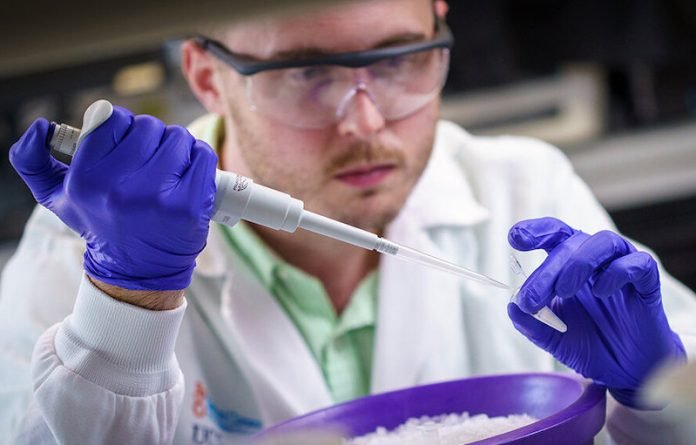
In a study from the University of California San Diego, scientists found a new biomaterial, which can be injected intravenously, reduces inflammation in tissue and promotes cell and tissue repair.
The biomaterial could effectively treat tissue damage caused by heart attacks in both rodent and large animal models.
The Researchers also found in rodents that the biomaterial could be beneficial to patients with traumatic brain injury and pulmonary arterial hypertension.
Pulmonary hypertension is a type of high blood pressure that affects the arteries in the lungs and the right side of the heart.
There are an estimated 785,000 new heart attack cases in the United States each year, and there is no established treatment for repairing the resulting damage to cardiac tissue.
After a heart attack, scar tissue develops, which diminishes muscle function and can lead to congestive heart failure.
In previous studies, the team developed a hydrogel made from the natural scaffolding of cardiac muscle tissue that can be injected into damaged heart muscle tissue via a catheter.
The gel forms a scaffold in damaged areas of the heart, encouraging new cell growth and repair.
Results from a successful phase 1 human clinical trial were reported in fall 2019.
But because it needs to be injected directly into the heart muscle, it can only be used a week or more after a heart attack—sooner would risk causing damage because of the needle-based injection procedure.
In the study, the team developed a treatment that could be administered immediately after a heart attack.
They tested the biomaterial on a rodent model of heart attacks.
They expected the material to pass through the blood vessels and into the tissue because gaps develop between endothelial cells in blood vessels after a heart attack.
The biomaterial bound to those cells, closes the gaps and accelerates the healing of the blood vessels, reducing inflammation as a result.
Researchers tested the biomaterial in a porcine model of heart attack as well, with similar results.
The team also successfully tested the hypothesis that the same biomaterial could help target other types of inflammation in rat models of traumatic brain injury and pulmonary arterial hypertension.
A study on the safety and efficacy of biomaterial in humans could start within one to two years.
If you care about heart health, please read studies that yogurt may help lower the death risks in heart disease, and Vitamin C linked to lower risk of heart failure.
For more information about health, please see recent studies that olive oil may help you live longer, and how Mediterranean diet could protect your brain health.
The study was conducted by Karen Christman et al and published in Nature Biomedical Engineering.
Copyright © 2023 Knowridge Science Report. All rights reserved.



